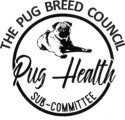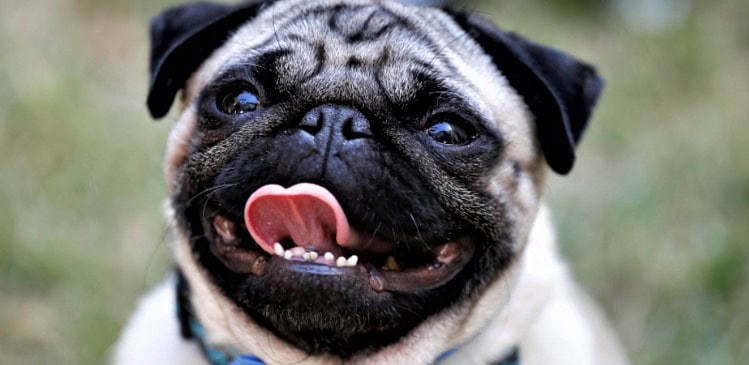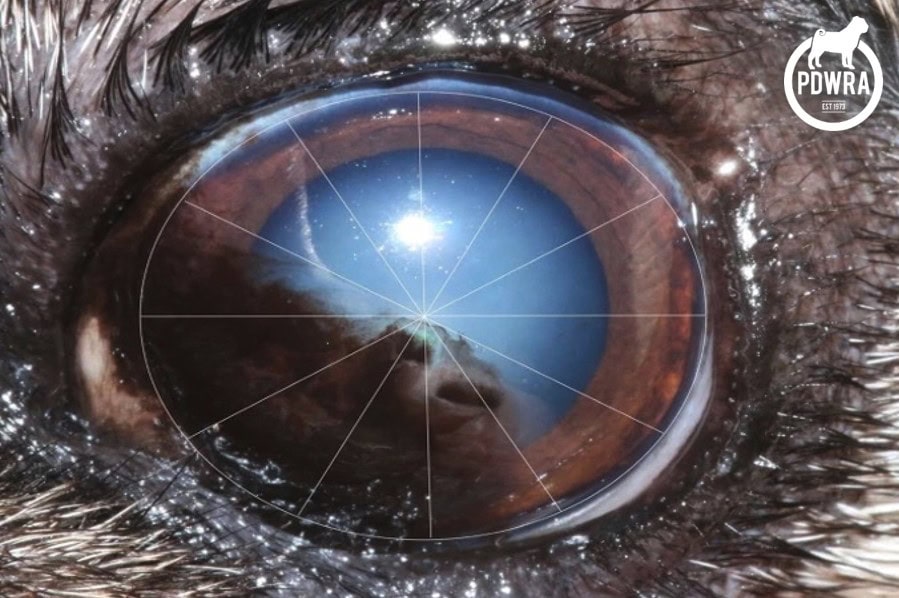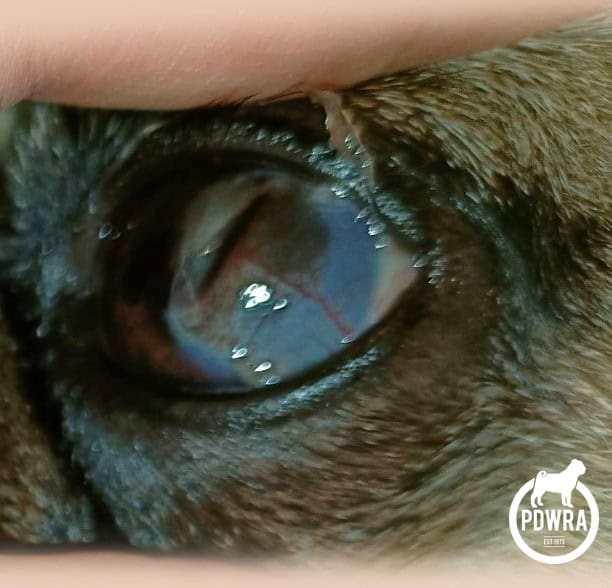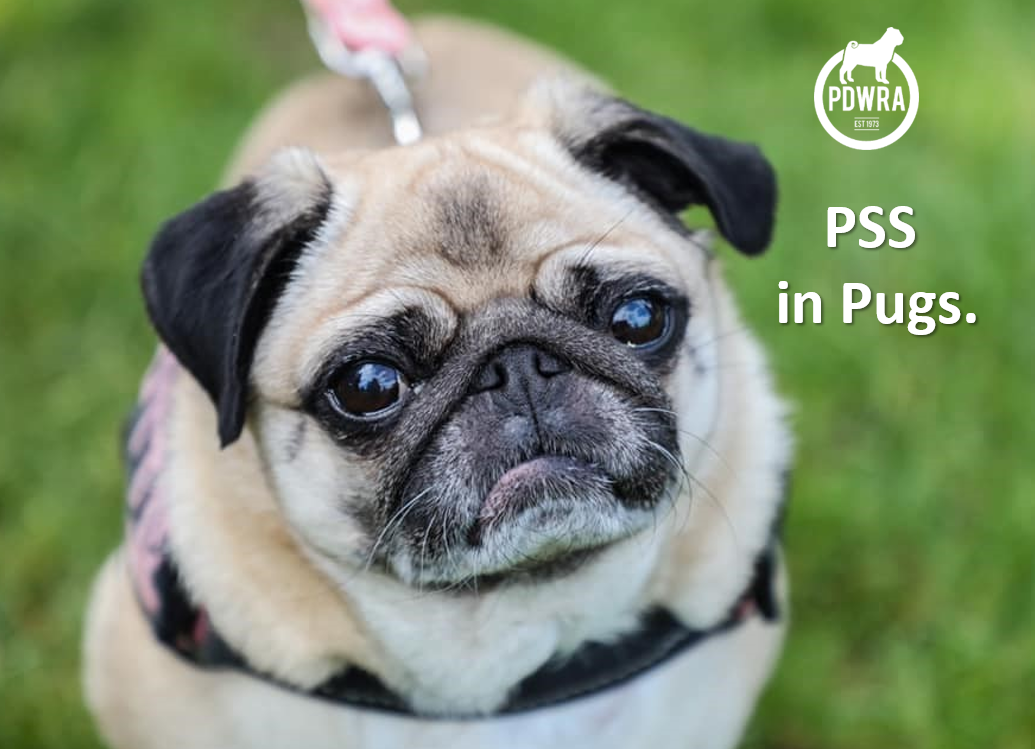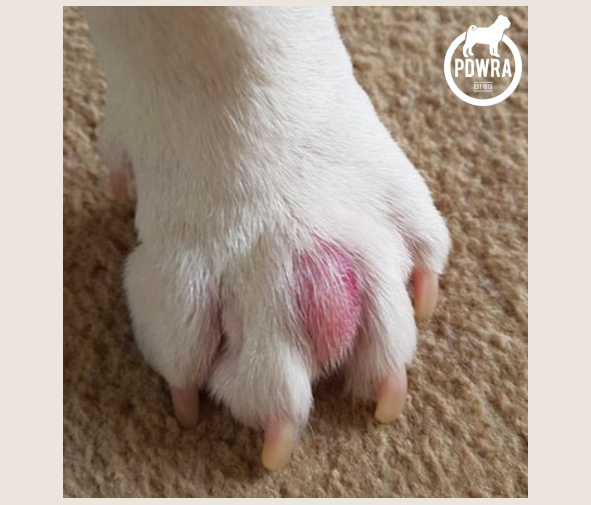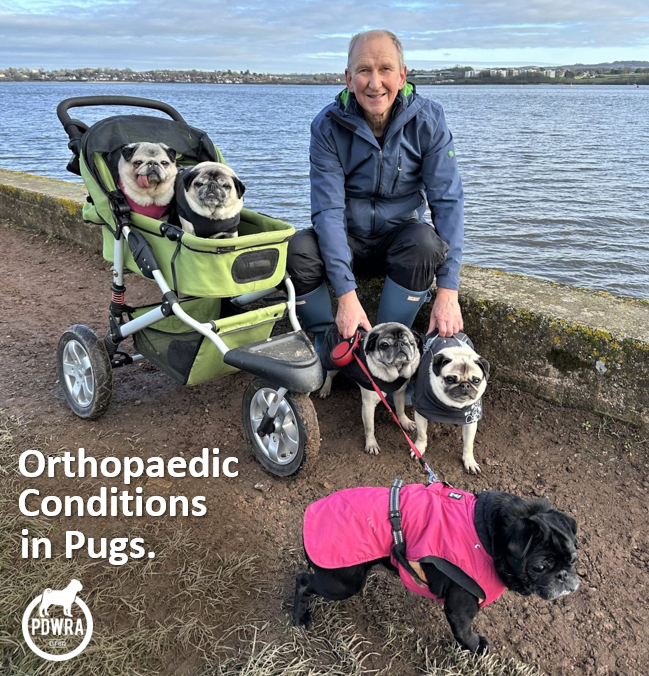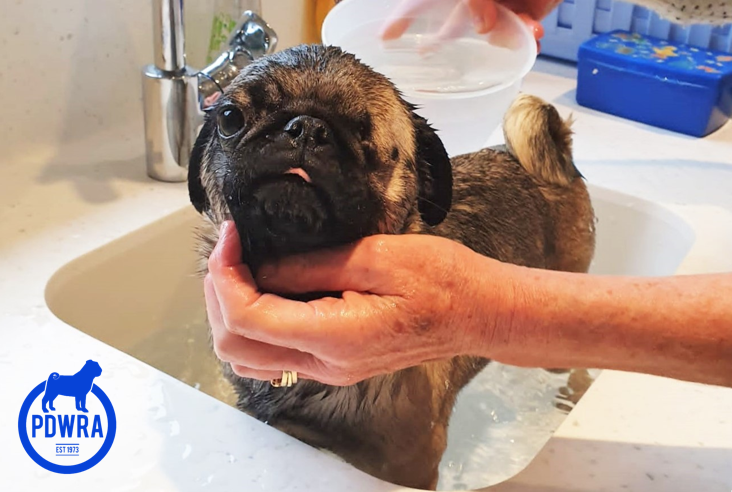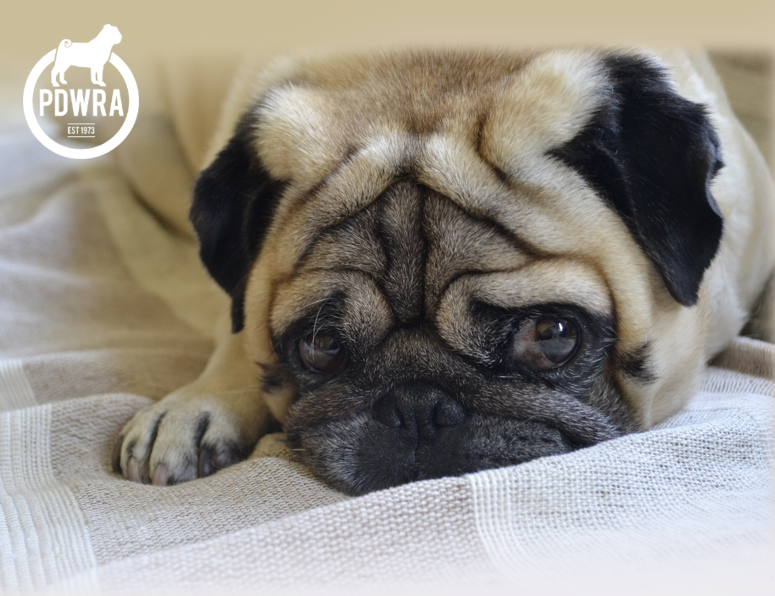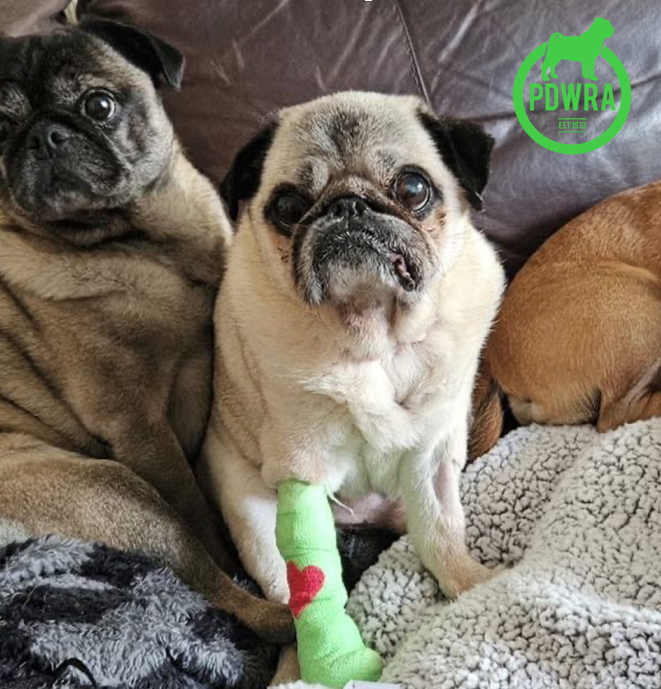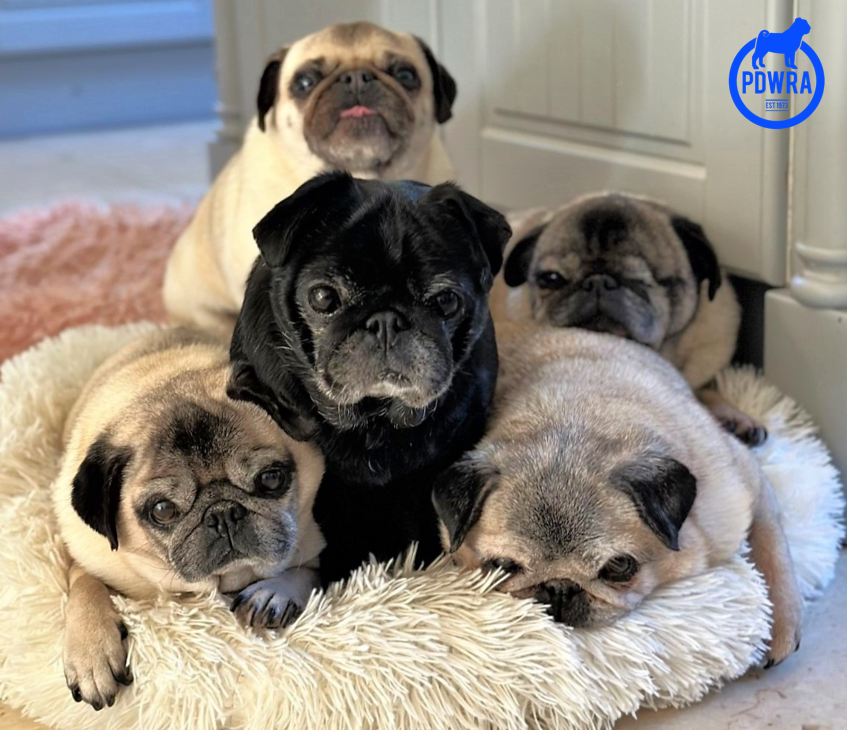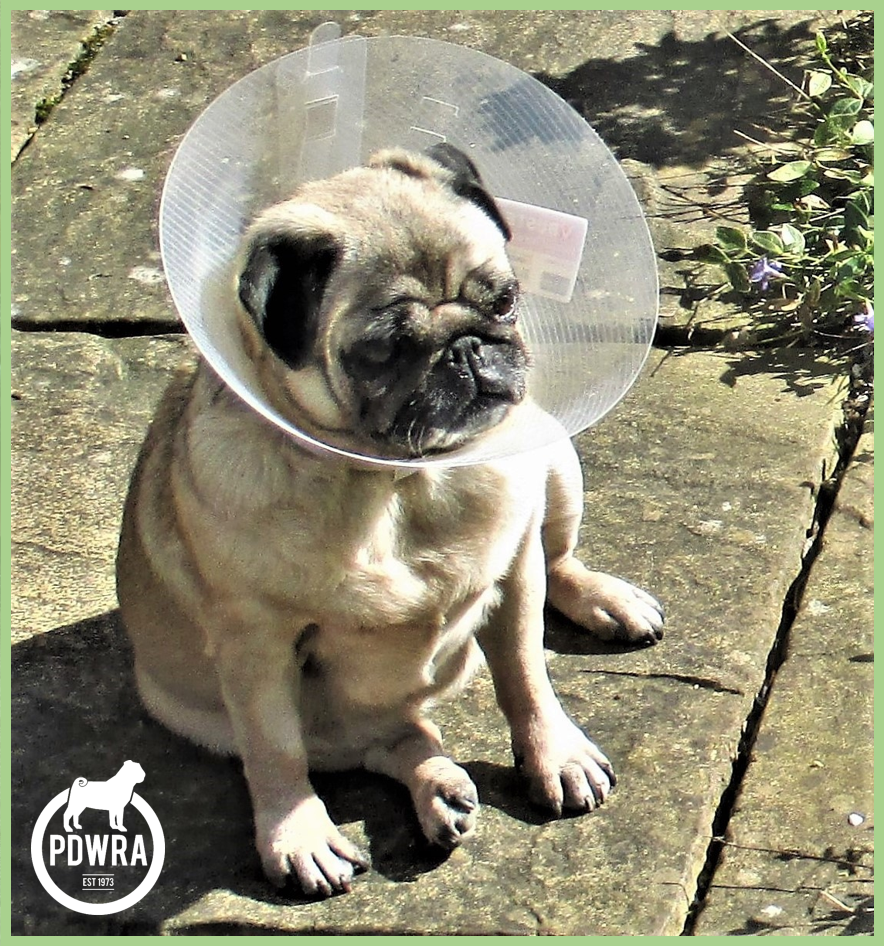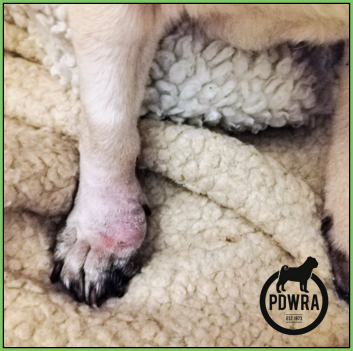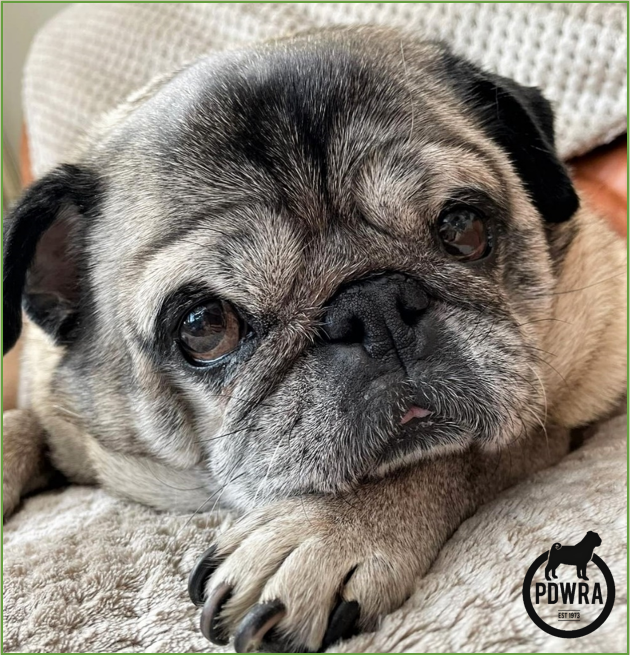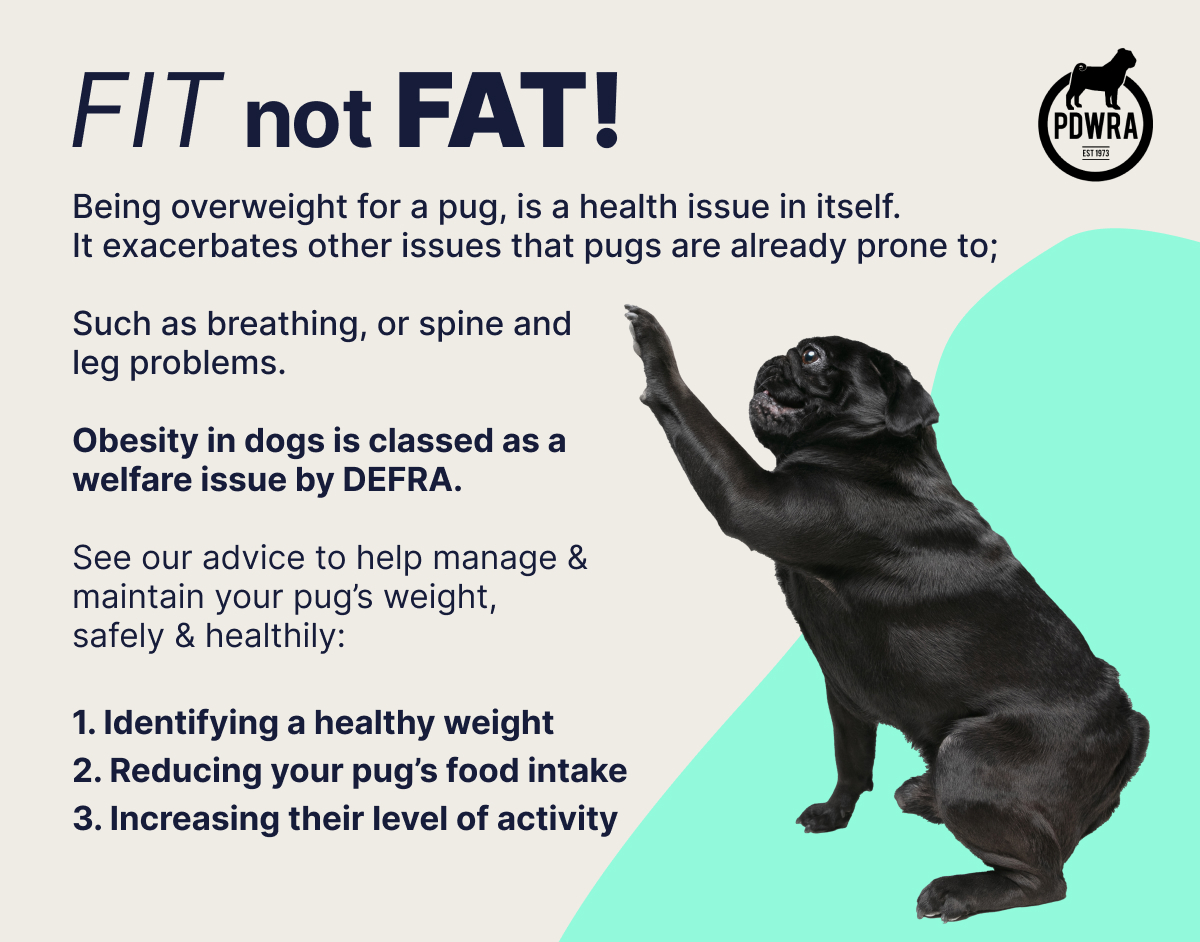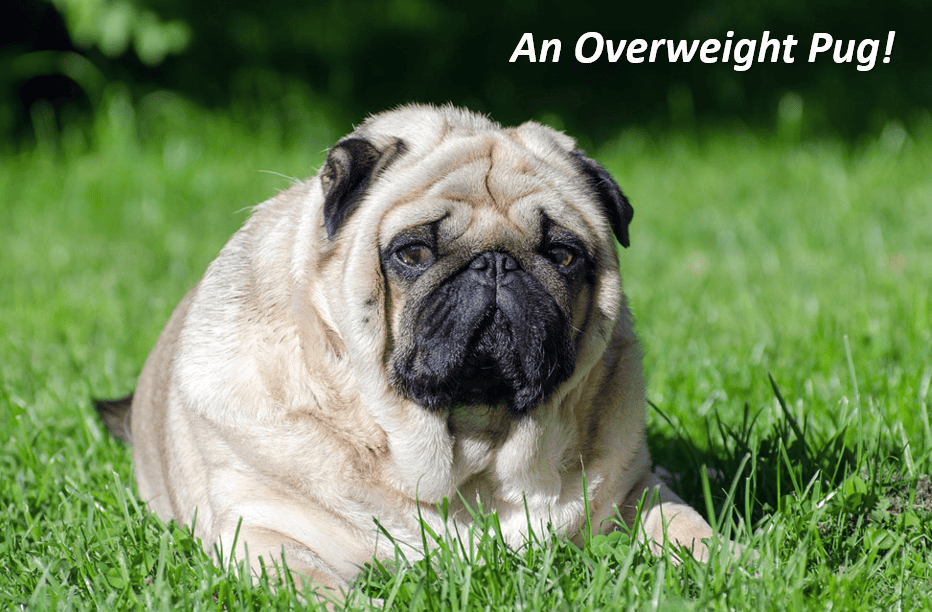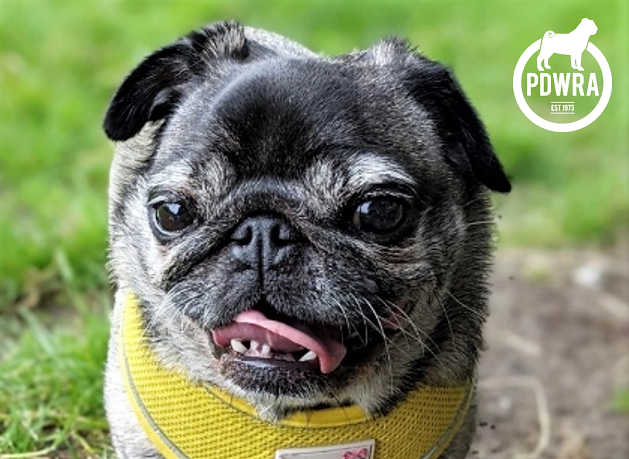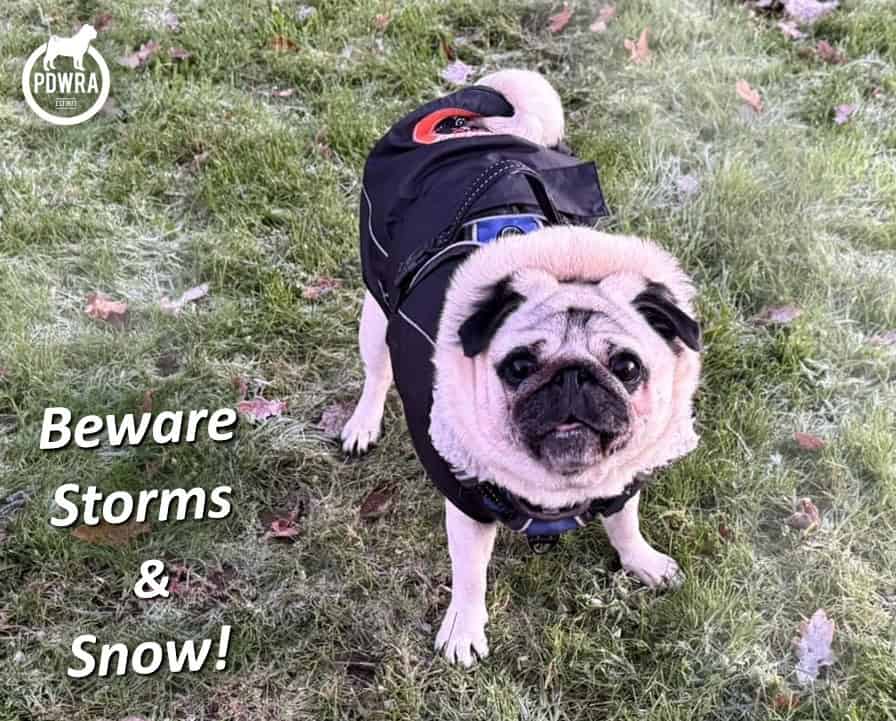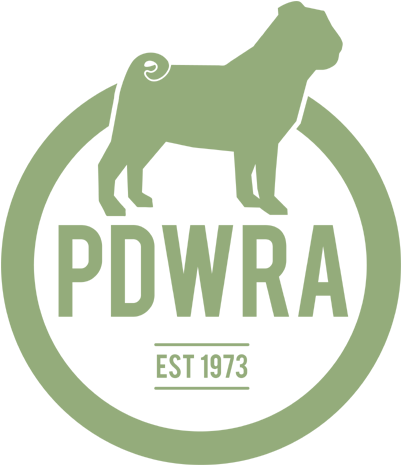Pug Health & Wellbeing
The Pug Breed Council Health Sub-committee have a website dedicated to trusted pug health information. They aim to provide and share information to help all Pug owners and breeders make educated decisions to ensure that their Pugs lead a long, healthy and happy life. They promote health testing and ethical breeding and are totally committed to conserving the Pug Breed that we all know and love. Visit their website for more information about pug health and their 5 star health scheme: www.pughealth.org.uk
Brachycephalic Obstructive Airway Syndrome (BOAS) is a condition due to the anatomy of short-nosed breeds, which can lead to secondary problems.
Please see PDWRA Vet Advisor Helen’s article about this important condition that every pug-owner should be aware of:
Brachycephalic Obstructive Airway Syndrome | The Pug Dog Welfare & Rescue Association
Click here to read Specialists, Dick White Referrals’ useful leaflet about this subject, also.
You can also follow The Cambridge BOAS Research Group, consisting of clinical researchers, surgeons/nurses, and geneticists, investigating respiratory disorders in brachycephalic dogs. Their research aims to improve the breed health and latest treatment options: (1) Cambridge BOAS Research Group | Facebook
******
PDWRA Vet Advisors Pug Health articles:
When is the Right Time to Say Goodbye?
All pug owners want their companion to have a good life. As they get older, or if they’re diagnosed with a serious illness, you may worry that they’re suffering and are having more bad days than good. Sometimes, it will be noticeable that your pet is in pain or is suffering after an accident or a sudden illness, but it’s more difficult to notice problems when your pet’s quality of life gradually changes over time.
Please see Helen, PDWRA Vet Advisor’s informative article regarding this very challenging area of preparing ourselves and ensuring that our beloved friend won’t suffer: When is the Right Time to Say Goodbye? | The Pug Dog Welfare & Rescue Association
******
Pug Eye Conditions: Part 2 of 2 – Proptosis, Dry Corneas, Pigmentary Keratitis, Entropion & Distichiasis
This follows on from Part 1, where Helen, PDWRA Vet Advisor, discussed corneal ulceration in pugs.
All of these conditions are inter-related; causes of which are similar to those that can result in a corneal ulcer.
Please see: Pug Eye Conditions: Part 2 of 2 – Proptosis, Dry Corneas, Pigmentary Keratitis, Entropion & Distichiasis | The Pug Dog Welfare & Rescue Association
Pug Eye Conditions: Part 1 of 2 – Corneal Ulcers & Associated Conditions.
Pugs have a number of significant eye conditions caused by extreme breeding creating the squashed appearance of the face.
This has resulted in a shallow orbital cavity (the bony area where the eye sits), large palpebral apertures (the exposed eye) and prominent eyeballs. This together with reduction of corneal sensitivity in pugs, leads to a significant number of serious eye conditions, which are mainly due to the exposure of the eyeball and the reduced protection it has.
Please read Part 1 of 2 by PDWRA Vet Advisor, Helen, at: Pug Eye Conditions: Part 1 of 2- Corneal Ulcers and Associated Conditions | The Pug Dog Welfare & Rescue Association
******
Portosystemic shunts (PSS).
Although not a condition that is over-represented in pugs, having seen a few cases of PSS in PDWRA pugs this year, Vat Advisor, Helen thought it was useful to write an article on it.
It is where an abnormal vessel goes directly from the intestine into the main circulation, bypassing the liver. As the liver not only processes nutrients, it also removes toxins, so these will be pumped round the body instead.
Please read Helen’s article on the consequences and treatment options, at: Portosystemic shunts (PSS). | The Pug Dog Welfare & Rescue Association (pugwelfare-rescue.org.uk)
******
Interdigital Cysts & ‘False Pads’ in Pugs
Pugs can be prone to both these conditions (which are linked), especially if they are overweight.
Please read more on this by Vet Advisor, Helen, at: Interdigital Cysts & ‘False Pads’ in Pugs | The Pug Dog Welfare & Rescue Association (pugwelfare-rescue.org.uk)
******
Orthopaedic Conditions in Pugs.
Most orthopaedic problems in pugs affect the hind limbs (back legs). Fortunately fractures (broken bones) and tumours (cancers) are very uncommon, so the two key conditions that most commonly cause lameness and stiffness in pugs are hip dysplasia and medial patellar lunation.
Please read more on this by Vet Advisor, Malcolm, at: Orthopaedic Conditions in Pugs | The Pug Dog Welfare & Rescue Association (pugwelfare-rescue.org.uk)
******
Atopic Dermatitis (Itchy skin).
Atopy is where an allergic reaction to inhaled substances (allergens, such as pollen and household dust), expressed in dogs as itchiness of the skin (atopic dermatitis). These dogs have a genetic predisposition to develop allergies and unfortunately, is another condition common to pugs. It can also be due proteins in the diet (food allergy).
Please read Vet Advisor, Helen’s article at: Atopic Dermatitis (Itchy skin!). | The Pug Dog Welfare & Rescue Association (pugwelfare-rescue.org.uk)
******
Brucella canis – disease.
Parting from the usual subject of pug health issues, this article highlights the disease, Brucella canis, being brought in to the UK via imported dogs. It is concerning as it can cause significant illness in humans (known as a zoonotic disease) especially in people who are immune-suppressed. PDWRA Vet Advisor Helen discusses Canine Brucellosis | The Pug Dog Welfare & Rescue Association (pugwelfare-rescue.org.uk)
******
Protein Losing Enteropathy (PLE).
PLE is an umbrella term for a group of diseases that damage the gut to such an extent that it not only has difficulty absorbing nutrients but also leaks protein out of the body.
To read our article on this, go to: Protein Losing Enteropathy (PLE). | The Pug Dog Welfare & Rescue Association (pugwelfare-rescue.org.uk)
******
Spinal conditions.
Not uncommon in Pugs, unfortunately because they have been bred to have flat faces (brachycephalic), is the associated abnormal development of their spines and early degeneration of their discs.
Please read more on this by Vet Advisor, Malcolm, at: Spinal conditions in Pugs | The Pug Dog Welfare & Rescue Association (pugwelfare-rescue.org.uk)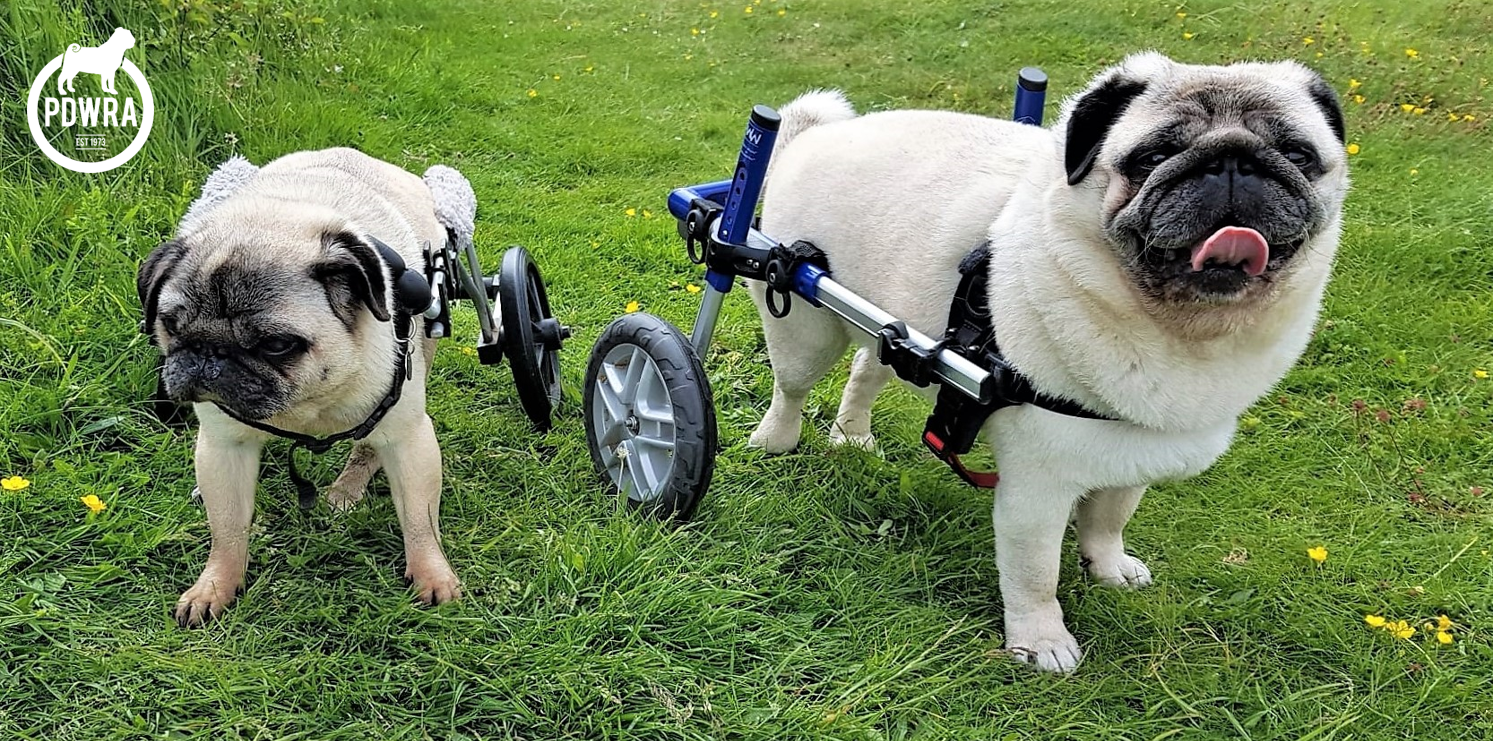
******
Various health issues Over-represented in Pugs.
PDWRA Vet Advisor, Helen’s own grumble illustrates the number of health issues that are pug breed related or over-represented in pugs.
Please see: Vet Helen’s Grumble Health Issues | The Pug Dog Welfare & Rescue Association (pugwelfare-rescue.org.uk)
******
Mast Cell Tumours.
Unfortunately, Mast Cell Tumours, are quite common in pugs, and since the tumour can take the guise of so many different lumps and bumps, it needs to be identified and addressed promptly.
Please see the full article: Mast Cell Tumours – by PDWRA Vet Advisor, Helen. | The Pug Dog Welfare & Rescue Association (pugwelfare-rescue.org.uk)
******
Seizures.
Unfortunately, seizures are something that a significant amount of pug owners may experience. There are many reasons why pugs are especially susceptible to this, please read Helen’s feature:
Seizures in Pugs | The Pug Dog Welfare & Rescue Association (pugwelfare-rescue.org.uk)
******
Obesity.
Being overweight for a pug is a health issue, plus it exacerbates other issues that pugs are already prone to. Therefore, the importance of weight management is essential for them to live long, healthy and happy lives.
Please see our webpage dedicated to this, with advice and tips on: FIT not FAT! | The Pug Dog Welfare & Rescue Association (pugwelfare-rescue.org.uk)
******
Dental Disease.
Because pugs are brachycephalic (Little/no nose/muzzle), their jaws are an abnormal shape, and as a result, they are more likely to have dental problems.
To read a little more about this, please see: Dental Disease in Pugs | The Pug Dog Welfare & Rescue Association (pugwelfare-rescue.org.uk)
For some general tips on dental health, please read: Pet Dental Health Month. | The Pug Dog Welfare & Rescue Association (pugwelfare-rescue.org.uk)
******
Pet Insurance.
As pet insurance can be quite a minefield out there, as with any insurance, Helen provides some advice on it:
PDWRA’s vet advice on Pet Insurance | The Pug Dog Welfare & Rescue Association (pugwelfare-rescue.org.uk)
******
During the various seasons of the year we have different potential health challenges and hazards around for our pugs, so please see this section for the most current seasonal information;
Seasonal Hazards for Pugs | The Pug Dog Welfare & Rescue Association (pugwelfare-rescue.org.uk)


